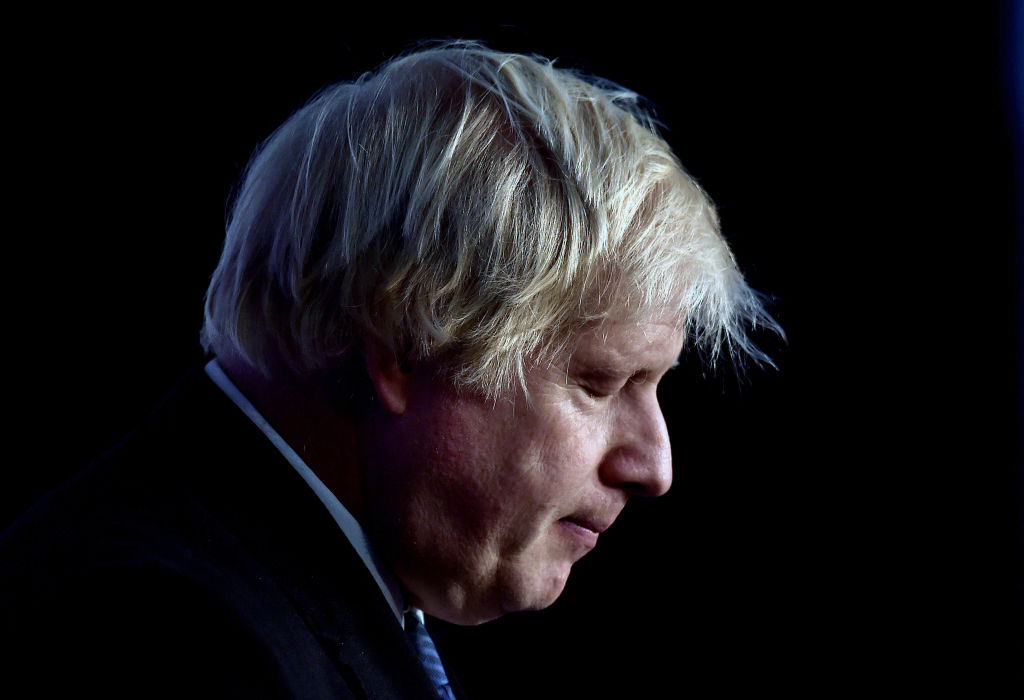Does Boris Johnson take an afternoon nap? Yes, according to a Downing Street insider who told the Times today that a post-lunch slumber was not unusual. Boris’s press secretary took a different view: ‘The Prime Minister does not have a nap. Those reports are untrue’, she said. Well, he should.
For one, Boris would be delighted with the inevitable comparison with Churchill that springs to mind. Winston slept deeply every afternoon during the war. ‘Take off your clothes and get into bed,’ he advised in a letter to his nephew. ‘Don’t think you will be doing less work because you sleep during the day. That’s a foolish notion held by people who have no imagination. You will be able to accomplish more. You get two days in one.’
Churchill is not the only illustrious napper. Mohammed snored serenely every afternoon in paradise, a cloud for a pillow, according to the Legend of Croquemitaine by the 19th century French author Ernest l’Epine. Our Prime Minister’s namesake Dr Johnson dozed all morning. For him meditation and half-sleep were integral to the creative process.
Even the ferocious striver Thomas Edison, who claimed to need very little sleep, was sometimes caught napping. The great Nikola Tesla, who worked as Edison’s assistant, said: ‘Although he only needs four hours sleep a night, he needs two three-hour naps each day.’
As well as being a pleasure in themselves, naps can recalibrate the brain. We all know how the world looks clearer after a kip. ‘When you can’t figure out what to do, it’s time for a nap,’ as the noted American wit Mason Cooley put it.
And the neuro-scientists tell us that when the mind wanders, something called the Default Mode Network kicks in. The DMN governs ethical thinking and allows the mind to see problems at a distance.
In actual fact, we can all sense that it’s perfectly natural to drop off after lunch. We Brits have often gazed with jealousy at our European friends who appear to shut down for a siesta when they’ve eaten and then resume activity at tea time. This seems inordinately sensible. Speaking personally, I find it almost impossible to do any useful work between two and three, so I feel I might as well spend it asleep. The nap will refresh me and probably boost my immune system. That’s my theory.
Even Mrs Thatcher, who famously claimed to waste as little time as possible on that unproductive state, sleep, was in fact fond of a doze. Official documents released two years ago prove that the prime ministerial Jaguar was her favoured location for forty winks. In 1987, No. 10 official Bob Kingston wrote a memo which raised concerns about her safety while sleeping in the day: ‘I am concerned that, when the PM dozes in the official car, the design of the headrests is such that, far from supporting her head and neck, they cause her head to drop forward.’ A special headset was duly designed.
The wider issue here is perhaps Boris’s oft-criticised laziness. His enemies love to leap on that. Ken Livingstone accused Boris of sloth. And we’ve all read about those occasions when he would turn up to give a speech with no idea either of what he was going to talk about or the name of the organisation which he was addressing. He is the greatest winger of the 21st century.
But this laziness may not always be a bad thing. The lazy are not under the impression, as Gordon Brown was, that more hard work is always necessary to solve every problem. The lazy conserve their energy and learn how to act efficiently. The lazy are also good delegators. They trust other people to get on with it. They do not micro-manage.
Perhaps we could even argue that Boris has taken the advice of the Lao Tzu, inventor of the Chinese philosophical system Taoism, or doing very little: ‘A leader is best when people barely know he exists, when his work is done, his aim fulfilled, they will say: we did it ourselves.’
I always felt that John Major was a good leader precisely because he didn’t really do anything. The contrast in leadership styles between the active and passive was dramatised in a recent episode of The Crown where the Taoist Queen discusses the Falklands with the hard working busybody Mrs Thatcher. Thatcher refuses to ‘stand idly by’ while the Queen argues that doing nothing can be quite a good tactic. In the case of the Falklands, the diplomatic solution she urged in the drama would have saved many lives and a lot of money.
If the reports of our great leader’s fondness for taking naps is true, perhaps the stigma around this noble custom will start to disappear. Certainly now that so many people are working at home, siestas should be easier to take. After all, who will know? There’s no boss prowling round the open plan office ensuring that the workers remain alert.
If there is any problem with Boris, it is not that he does not do enough. It is that he does too much. Leaders should take a break more often.






Comments